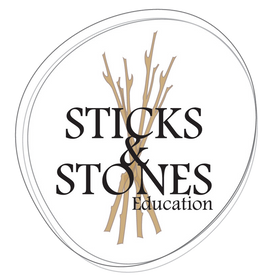
Celebrate World Bee Day!
We need bees.
They are so fundamentally important to our world. They may be small but they make the world go round. They pollinate the plants that feed us and make the oxygen we breathe.

In preparing for World Bee Day I came across a new website and I was then inspired to put together a blog article on the subject. My preschool class are currently mad keen insect discoverers and this ties in beautifully with their interest as well as my love of sustainability and respect for life.
Did you know?"
"Pollinators affect 35% of global agricultural land, supporting the production of 87 of the leading food crops worldwide.* The vast majority of pollinators are wild, including over 20,000 species of bees. Australia is home to approximately 2,000 native bee species. Together with the European honey bee, Apis mellifera, they are keystone pollinators of our forests, fodder, flowers, fibre and food crops."
If you're preparing for the day, we happen to carry a fabulous model of the life cycle of a honey bee. Children are physical kinaesthetic learners and while looking at diagrams of a life cycle is a valid teaching resource, being able to hold safe replicas and models simpy enrich children's learning to that next level. Observing bees can be tricky or sometimes impossible for children. The models however

Stephanie Hathaway Designs
A wonderful companion piece to this life cycle set is a learning bundle from Stephanie Hathaway Designs. She's an amazing artist and designer who creates some seriously beautiful resources that you can download for yourself. Her bundle includes 21 pages of resources such as The Anatomy of a Bee Poster, Complete the Bee Life Cycle Poster, and a Bee Block Pattern Puzzle & Count the Shapes Worksheet. Seriously, it's beautiful and it's affordable so get on it!
Her bee bundle looks like this:

And her Complete the Life Cycle Poster is perfect for our model of the life cycle of a honey bee!
Encyclopaedia Britannica
Encyclopaedia Britannica is also a fantastic resource for information and ideas and images that can support you to explore a unit of learning and discovery on bees. For example this image of the life cycle of a honey bee shows children the stages that bees go through in life. Visit their website to explore their images and information.

The Wheen Bee Foundation
The Wheen Bee Foundation supports honey bee research and development. Foundated in 2009 by Gretchen Wheen, the foundation has established itself as Australia’s premier, not-for-profit organisation supporting honey bee research and development.

They have a fabulous teachers guide called A Teacher's Guide to Bees that you can download. The Wheen Foundation are also responsible for the World Bee Day website! This is actually how I came across them and found their wonderful teaching guide.
They also have other wonderful resources such as this wonderful poster you can download here. I know I'll be printing it and using it in my display and emerging project about mini-beasts.

The Australian Native Bee Book
If you are super keen to learn more about Australian native bees, then award winning The Australian Native Bee Book may be the book you need!

The Australian Native Bee Book by Tim Heard describes native bees generally and provides a complete guide to keeping Australian native stingless bees. It is a richly illustrated with over 500 photos, drawings and charts to increase accessibility and aid learning. Tim Heard is an expert on native bees who has spent his lifetime intimately engaged with these unique Australian creatures. You can grab your copy here.
Aussie Bee
Aussie Bee is also a wonderful resource that I found and used with my preschoolers. If you're keen to delve into the world of Australian native bees, this is the website for you! Some of their photos have made it onto my project board and have inspired some wonderful conversations.

Australian Native Bees Across Australia
Are you looking to find native bees to add to your gardens? Here are a few small businesses you can connect with who can help you on your journey of exploring Australian native bees.
https://www.nativebeehives.com/
As I find more wonderful resources along the way, I'll add them to this article, so save it for next year OR whenever your children may be keen on learning about bees.
- Gaby

















Oh Tinna, Thank you so very much for your beautiful comment on my blog post! You have totally made my evening and put the biggest smile upon my face! Just the extra nudge I needed as I sit down to work on adding to another blog post on the value of arts and crafts for children! Thank YOU! <3 – Gaby
Gaby @ Sticks & Stones Education on
WOW! I can’t thank you enough for sharing ALL of this amazing information. To say I am hugely appreciative is a massive understatment. No wonder I love all your products and goodies and think you are THE best.
Tinna Loker on